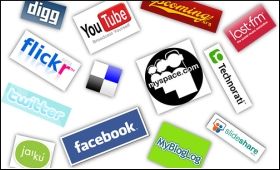|
|
|

|
Social media use ups belief in Covid-19 misinformation: Study
|
|

|
|
| Top Stories |
 |
|
|
|
IANS | 14 Dec, 2020
The more people rely on social media as their main news source the more
likely they are to believe misinformation about the pandemic, say
researchers.
The study, published in the journal Telematics and
Informatics, also found that levels of worry about Covid-19 increased
the strength of people's belief in that misinformation.
"Fact
checkers are important for social media platforms to implement. When
there is no fact checker, people just choose to believe what is
consistent with their pre-existing beliefs," said study author Yan Su
from the Washington State University in the US.
It's also
important for people to try to get out of their comfort zones and echo
chambers by talking with people who have different points of view and
political ideologies.
"When people are exposed to different
ideas, they have a chance to do some self-reflection and
self-correction, which is particularly beneficial for deliberation," Su
said.
For the study, the research team analysed responses to the
2020 American National Election Studies Exploratory Testing Survey,
which was conducted at the start of the pandemic.
Of the 3,080
people who submitted questionnaires, a little more than 480 said they
believed at least one of two pieces of misinformation about Covid-19:
that the coronavirus was developed intentionally in a lab and that there
was currently a vaccine for the virus.
The respondents were also asked to rate how confident they were in these beliefs.
They
compared this data to the participants' other responses on the survey
related to social media use, levels of worry and trust in scientists as
well as how much the respondents valued discussions with people of
differing viewpoints.
The team found an amplification effect from social media users who were particularly worried about the coronavirus.
"It
seems that the more you use social media, the more likely you become
worried about Covid-19, perhaps because there is a lot of unfounded and
conspiracy theories on social media," Su said.
"Then this in turn can trigger a higher level of worry which leads to further belief in misinformation," the author noted.
|
|
|
| |
|
|
|
|
|
|
|
|
|
|
|
|
|
|
| |
| Customs Exchange Rates |
| Currency |
Import |
Export |
US Dollar
|
₹91.35
|
89.65 |
UK Pound
|
₹125.3
|
₹121.3 |
Euro
|
₹108.5
|
₹104.85 |
| Japanese
Yen |
₹58.65 |
₹56.8 |
| As on 19 Feb, 2026 |
|
|
| Daily Poll |
 |
 |
| What is your primary "Make or Break" expectation from the Finance Minister this year? |
|
|
|
|
|
| Commented Stories |
 |
|
|
|
|
|
| |
|